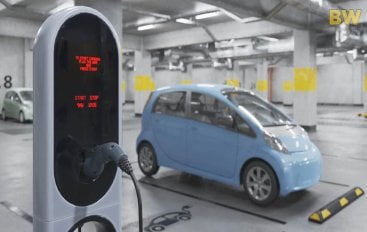Electrifying Indian Mobility For Mass Adoption


Electric Vehicle or EV has become a popular terminology used by new age startups and entrepreneurs witnessing the larger shift in the means of mobility from conventional petrol and diesel engine to battery-based vehicles. The EV industry is in focus as it favours the government’s target of carbon emission.
In the financial year, 2022 EV sales increased by 4,29,217 units in FY22. Auto Industry and battery manufacturers are accelerating and opening to a sunrise segment. Recently, Reliance Industries in their annual general meeting mentioned their green energy plans and the energy revolution decade.
The EV trend has also given rise to many startups and when asked about their contribution to the sector, Visakh Sasikumar, Founder and CEO, Fyn said “Just after establishing Fyn, we realised that we could make a larger impact in a shorter time by deploying fleets of EVs in the last-mile logistics sector. We wanted to bring in a paradigm shift in this industry and use our data-driven processes to create a more efficient, transparent and streamlined system."
With advancing technologies, AI and IoT help to develop many tech-based tools to recognise patterns. Artificial intelligence basically analyzes data through machines and does decision-making based on that whereas the Internet of things means connecting every electronic device to the internet with the help of Wi-Fi, Bluetooth and others.
Varun Goenka, Co-founder and CEO, Chargeup added, “Chargeup is a finetech company powering the growth of drivers into last-mile mobility. Hence, with our battery swapping service, we delivered a 10 times difference in driver experience, by shifting from 10-hour charging to 2 min swap and 40 per cent reduction in his cost per km, shifting the batteries from a cost centre to revenue centre and double their earnings”.
These are not the only trends now the electrification of the fleet is also going for electric buses and light and heavy commercial vehicles. This trend now continues to expand for cab services as companies like Ola is working on promoting E2W. As the rate of EV adoption increases, public charging networks, fleet operators and campuses will need to meet demands for energy without incurring high demand charges or putting undue demands on the power grid.
Pragya Mittal, Co-founder, Evify adds, “Sodium Ion batteries can be a good option if commercially feasible and it can be achieved through mass production or scaling”.
On the future of sodium-ion batteries and their feasibility, Akshay Singhal, Founder and CEO, Log9 Materials said, “Various factors indicate that sodium-Ion batteries are unlikely to replace lithium-ion batteries. To begin with, Sodium-Ion batteries are still in the early stages of commercialisation and must be optimised for large-scale production in terms of both supply chain and product design."
The recent most talked topic of discussion in the EV industry was an alternative to lithium-ion batteries i.e. sodium-ion batteries. In a recent development, UK based firm called Faradion owned by Reliance Industries is focused on research on sodium-ion batteries.